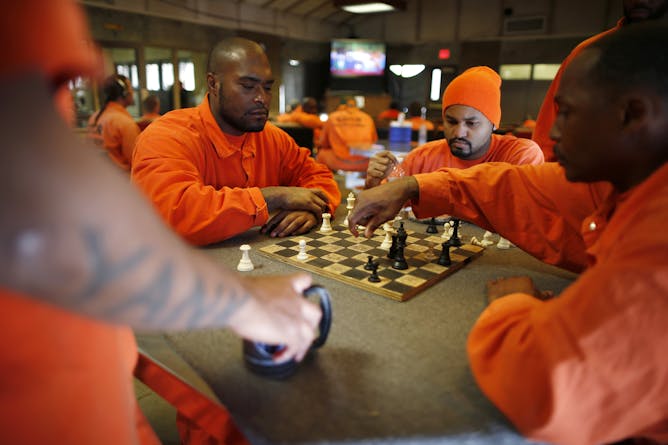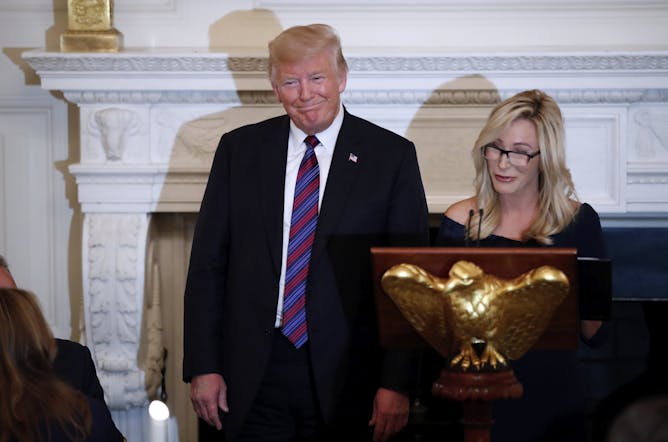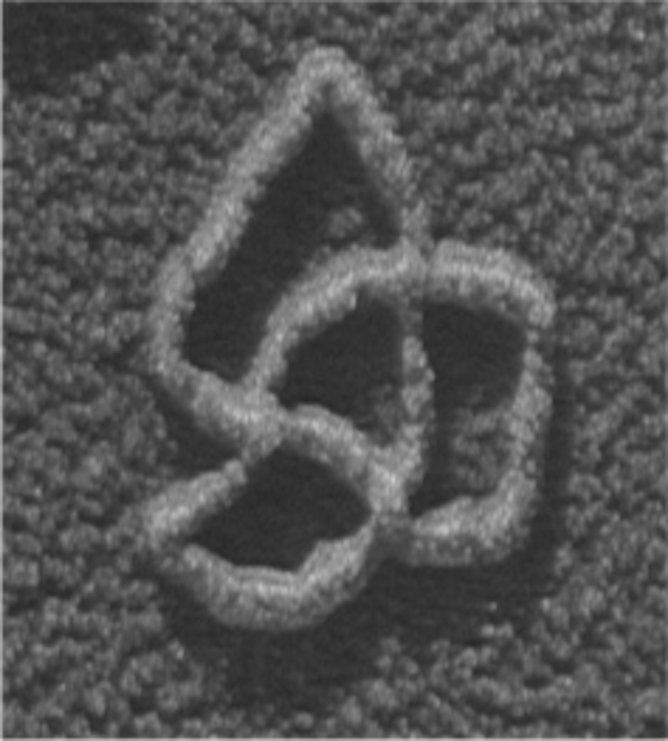|
|
|
Editor's note
|
|
A nationwide prisoner’s strike is now in its second week, with an unknown number of inmates refusing to eat or work to protest dilapidated facilities, harsh sentences and other issues. They’re also demanding more than the pennies per hour they are typically paid to do a wide variety of work, from fighting wildfires in California to packaging Starbucks coffee. Ethics aside, the practice may run afoul of a number of U.S. legal
commitments, including the 13th Amendment to the Constitution, writes Ruben J. Garcia, a law professor at the University of Nevada, Las Vegas.
At a White House dinner for evangelical leaders on Monday night, President Trump promised to protect religious liberty. And earlier last month, Attorney General Jeff Sessions announced the creation of a religious liberty task force. Historian of religion David Mislin explains how far evangelical views have shifted. Back in the 19th century, he writes, some evangelical Christians argued that a religion that needed protection from government had
no reason to exist at all.
And how do your cells keep DNA from getting tied up in knots? It’s a bit of a biological mystery – one that mathematicians are helping to unravel. Mariel Vazquez at the University of California, Davis describes her research on the many shapes of DNA.
|
Bryan Keogh
Economics + Business Editor
|

|
|
Top stories
|

California inmates take a break from their ‘jobs’ fighting fires to play some chess.
Reuters/Lucy Nicholson
Ruben J. Garcia, University of Nevada, Las Vegas
Prisoners in 17 states are striking to call attention to harsh conditions and low pay for their labor, something that may run afoul of the 13th Amendment and other legal commitments.
|

President Donald Trump with pastor Paula White during a dinner for evangelical leaders in the White House, on Aug. 27, 2018.
AP Photo/Alex Brandon
David Mislin, Temple University
President Trump has promised to protect religious liberty. But there was a time when evangelicals believed that a religion that needed protection from government had no reason to exist at all.
|

DNA knot as seen under the electron microscope.
Javier Arsuaga
Mariel Vazquez, University of California, Davis
Mathematical models can describe the many shapes of DNA, as well as cellular processes like DNA replication.
|
|
|
Politics + Society
|
-
Julia Gaffield, Georgia State University
A renamed Brooklyn street celebrates Jean-Jacques Dessalines, a Haitian slave turned president. For centuries his legacy was tarnished by allegations that Haiti's revolution led to 'white genocide.'
-
Chris Edelson, American University School of Public Affairs
Congress is supposed to be a check on presidential power, but party politics has muted Republican criticism of Trump. Restoring balance means making a radical change.
|
|
Science + Technology
|
-
Matthew Motta, University of Pennsylvania
The scientific community always wants more cash to fund research. A new study examines whether more concrete knowledge of science or more general interest in it is likelier to loosen the pursestrings.
-
Sanjay Goel, University at Albany, State University of New York
A cybersecurity expert offers tips to keep high schoolers safe on mobile devices, computers, games and social media.
|
|
|
|
Trending on site
|
-
Tim Logan, Texas A&M University
A weather expert explains where petrichor – that pleasant, earthy scent that accompanies a storm's first raindrops – comes from.
-
David Markowitz, University of Oregon
Researchers analyzed troves of messages sent between matches and found that the fibs people tell are usually rational ones that serve a purpose.
-
Luke Strotz, University of Kansas
Death is inevitable for individuals and also for species. With help from the fossil record, paleontologists are piecing together what might make one creature more vulnerable than another.
|
|
|
|
| |
| |
|
|
|
|
|
|
|